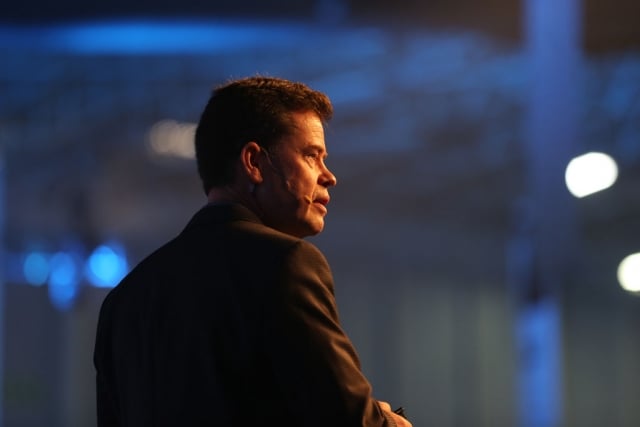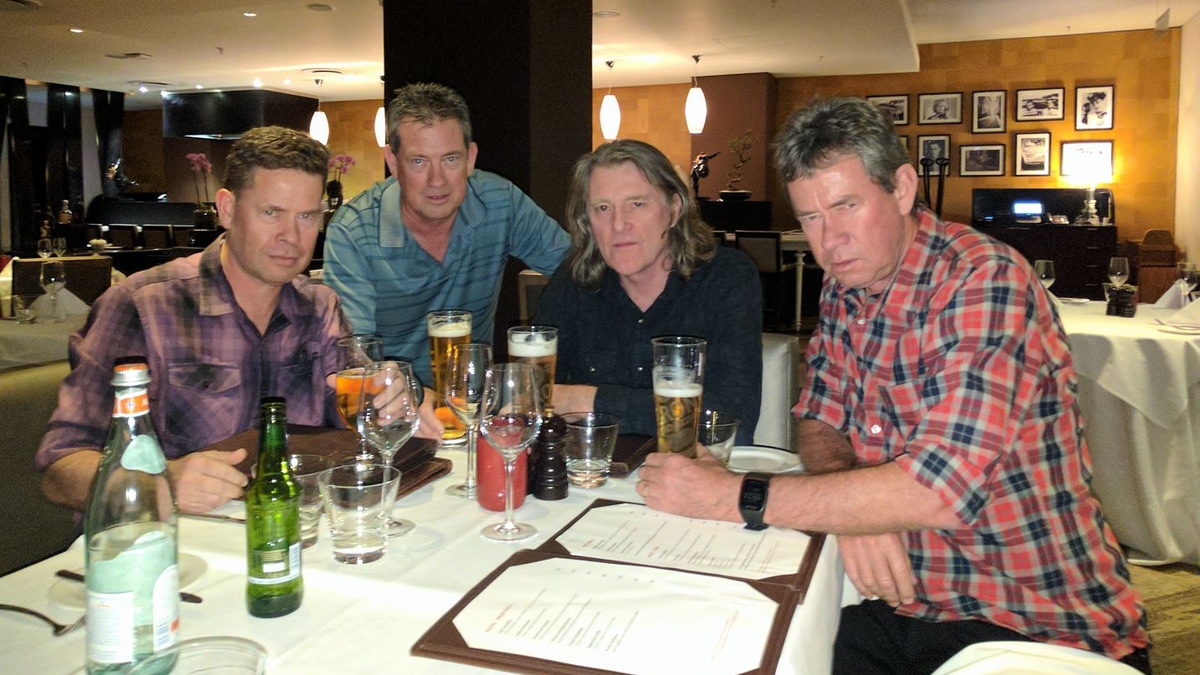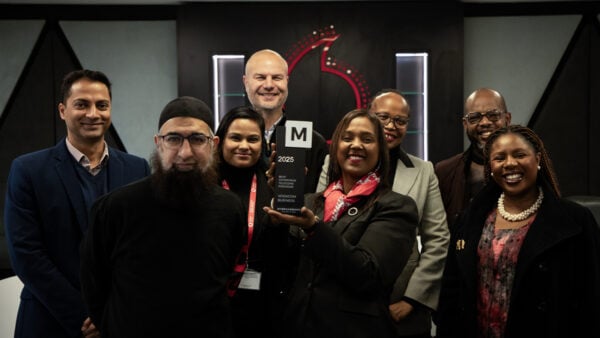The South African punk rocker who became a top Telkom executive

Before rising to the top ranks of corporate South Africa, serving as Telkom’s chief operating officer and sitting on the boards of major institutions, Brian Armstrong was the rebellious frontman of a post-punk band.
In the 1980s, Dog Detachment carved out a cult following and critical acclaim, earning a place among South Africa’s most iconic alternative bands.
Armstrong and his bandmates, including his brothers Alan and Terry, are still remembered as South African rock legends.
Formed in 1980 in the relatively conservative Johannesburg suburb of Linden, Dog Detachment was unapologetically progressive — and often controversial.
Originally named “Dog”, the band began gigging and recording while Armstrong — performing as Brian Wylde — was studying electronic engineering at the University of the Witwatersrand (Wits).
While some labels expressed interest in recording Dog’s first single, the band later revealed that this came with conditions that were unacceptable to them.
“The South African music scene is tired,” the band’s press release said when it published its first single, which was entirely self-produced.
“The media is largely to blame. It dictates to the public, and therefore the bands are caught in a vicious web, whereby they are forced to choose between individual direction and what is expected of them in order to survive.”
For this reason, Dog said it decided to go it alone and record its debut single at its own expense. It featured two originals, Why? and In the City, with a third bonus song, a cover of Matt Monroe’s Born Free.
“The decision to do this was taken largely because the record companies that had shown interest in the band would not put their money where their mouths were,” it said.
Shortly after the single was released, drummer Blister left the band, saying that it was consuming too much of his free time.
Armstrong’s brother Alan joined to take his place, along with fellow Wits student Mike “Animal” Adams on keyboards and rhythm guitar. Dog Detachment was born.
Against the stream

Dog Detachment would only release its first full album in 1983, with detractors saying it would never happen on their own terms. They named it The Last Laugh in honour of their haters.
In a 1984 interview, broadcasting legend Martin Baillie asked Armstrong whether the album’s name was a dig at the record industry.
“Well, it could be taken that way if you want to, yes,” Armstrong said with a grin.
“There were a few people that said we would never get an LP out. We did it our own way, and we feel it was the last laugh in a lot of respects.”
Three decades later, in a 2014 interview with the late Jeremy Thomas, Armstrong revealed that recording their music was long nights of hard work.
“On a typical night in 1983–1984, we’d go into the studio at 6pm and record through to 3am,” he said.
“Those that had to go to work would go to work; I went to lectures later. If you’re passionate about something, you do that.”
After completing his Bachelor’s in electronic engineering, Armstrong obtained his Master’s degree from Wits in 1984.
“The lesson for today is if you’re doing something you love, when you’re getting creative energy out of something, positive energy, it’s amazing how far you can go and how hard you can go at it.”
The Last Laugh was recorded between October 1982 and March 1983 and released later that year through David Gresham Productions.
By this point, Dog Detachment was already moving away from pure punk, and when Bailie asked about it, Armstrong didn’t mince words: “I think punk music as a relevant musical form is pretty much dead.”
Dog Detachment followed The Last Laugh with two more albums: Fathoms of Fire in 1985 and Barriers in 1989.
However, the band’s momentum was disrupted between the two releases when Brian and Mike were called up for their two years of national service in the army, while Alan was drafted into the air force.
When the band made its comeback in 1988, the South African Rock Encyclopedia said they were calmer. Although the music was more accessible, the lyrics were more cerebral and less naive.
While the band never officially disbanded, work commitments became the priority as they knew they couldn’t earn a decent living playing their music.
Rocking corporate South Africa

After completing his Master’s degree, Armstrong joined the CSIR as a systems engineer and progressed rapidly into management roles.
In 1989, he left for the United Kingdom to study full-time at University College, London. He graduated in 1992 with a PhD.
He was appointed director of the CSIR’s division for information and communications technology in 1998 and left the institution in 2001 to join AST Networks. Two years later, he was at British Telecoms (BT).
Armstrong started as BT’s global solutions regional manager for Sub-Saharan Africa and was promoted to vice-president for the Middle East and Africa in 2007.
In 2010, he joined Telkom and was appointed Group Chief Operating Officer on 1 April 2013, where he served until his retirement in 2017.
Since then, Armstrong has served as the Chair in Digital Business at the Wits Business School and has been appointed to the boards of several prominent companies.
He was appointed non-executive director of Old Mutual in 2020, BankservAfrica in 2021, and Eskom’s National Transmission Company of South Africa in 2024.
Speaking to What’s Next with Aki Anastasiou last year, Armstrong said two big technologies will drive significant growth and change in the next 5–10 years.
“First is truly ubiquitous connectivity, wherever you are, however you want it. The second is AI and generative AI,” Armstrong said.
“AI has been with us for sixty years. It goes through first and starts, and my sense is we’re in a surge of development.”
Armstrong said it was uncertain whether AI development would hit another plateau, but that it was already a game changer.
“It is changing the boundaries between what people used to have to do and what machines can do, and in many cases, what machines can do better than people,” he said.







































